Can I Get Compensation for Depression in a Personal Injury Case?
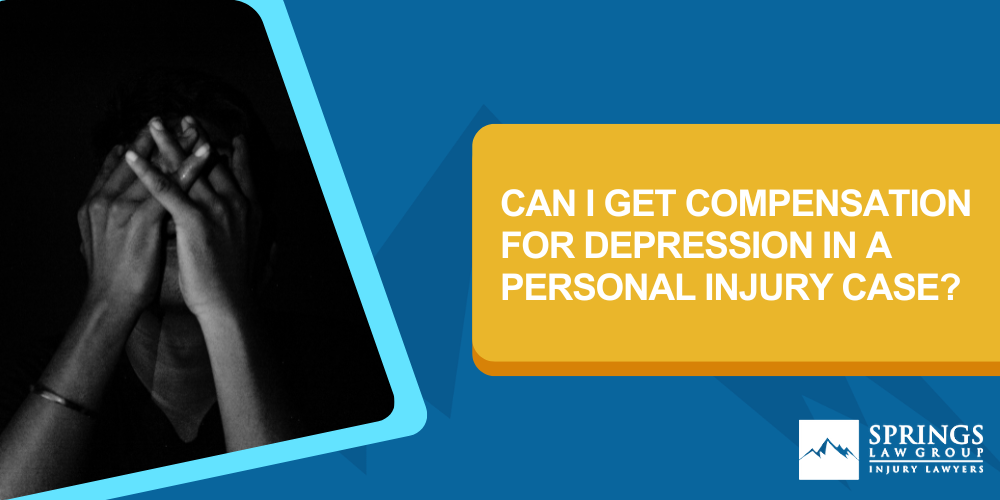
Sometimes the worst part of being in an accident isn’t even the physical injury. Being unable to complete basic physical tasks is a huge inconvenience, but what about the mental strain of having your independence taken from you? What about having personal plans and goals delayed or completely canceled? In this article we’ve answered the topic “can I get compensation for depression” in a personal injury case.
We value your mental health.
We know that a broken leg is just one aspect of the trauma someone can endure after an accident. Were you in an accident and feel your mental health has been impacted? Are you riddled with depression and can’t even get back behind the wheel?
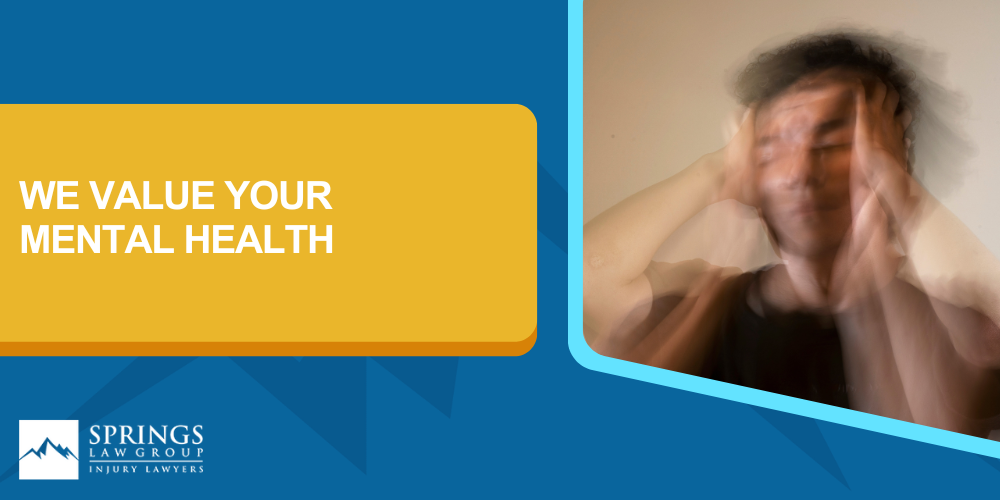
Perhaps you narrowly escaped with your life, and now you’re haunted by the memory of that close call. You will be selling yourself short if you don’t make a claim that includes damage to your mental health.
Were you in an accident?
From motor vehicle accidents to accidents on the job, to an unfortunate slip and fall in the grocery store– the physical and mental consequences can be far-reaching.
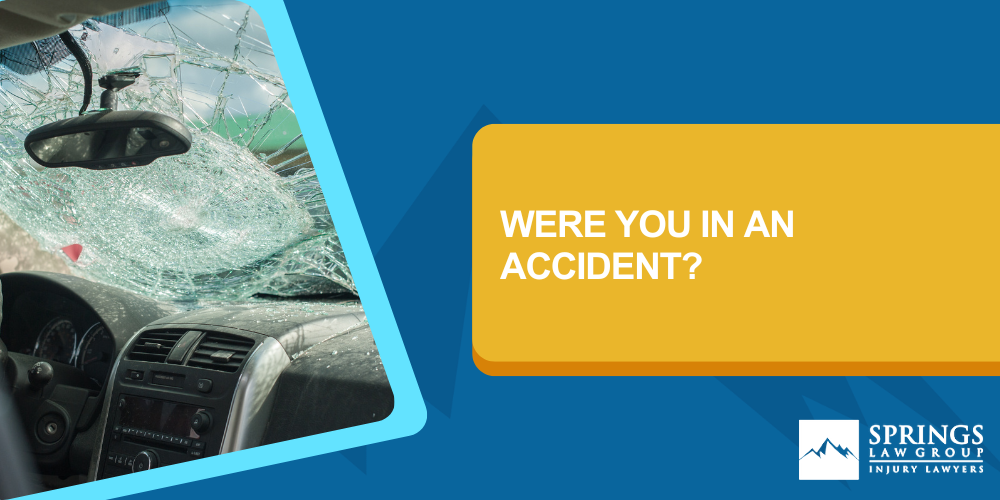
Broken bones heal, and scars fade, but the mental impact of a near-death experience may outlast them both.
Don’t ignore your mental state because you think you cannot receive compensation! “Non-economic damages” exist for this reason!
So, how much could I actually get?
Damages that are not immediately economically quantifiable are known as non-economic damages. So, while you may be able to tell how much of your income you’ve lost due to not being able to work, it’s not as easy to put a dollar amount on how much damage to your mental health is worth.
How much you are entitled to is assessed on a case-by-case basis. In most civil cases, the cap on non-economic damages is $250,000, which has been updated for inflation since the Colorado code section that established the cap was enacted.

However, under Colorado law, a person’s pain and suffering damages are not capped if he or she suffers a permanent physical handicap due to an accident.
In light of this, it’s best to have your attorney advise you on the amount you are likely to be awarded based on your specific circumstances.
The clock is ticking!
When did this happen to you? Maybe the accident happened some time ago, but you could still have some time left! In personal injury or negligence claims, time starts to run from the date of the incident.
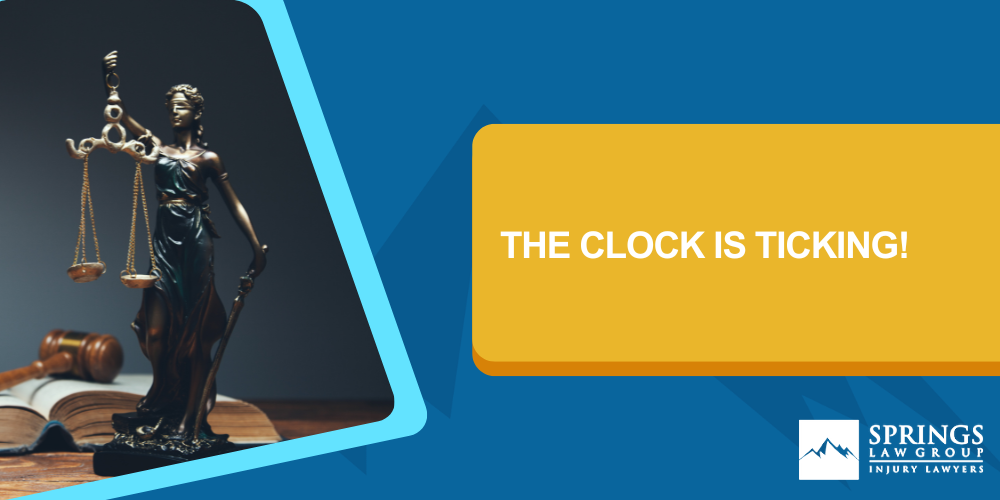
According to the Colo. Rev. Stat. Sec. 13-80-101 you have three years to bring an action. Don’t sit on your rights! Let’s have an attorney begin the process of gathering evidence in your favor!
What if my injury isn’t that bad? What do I need to bolster my case?
Be honest. Was the physical impact nominal? No problem. You don’t have to suffer a severe physical injury to be compensated. What if you narrowly missed actual physical contact, were terrified at that moment, and have awful flashbacks now and then?
The stress you felt due to a person’s negligence, the shock experienced because of the potential accident, or the difficulties in recovering from the occurrence are enough to establish a basis for compensation.
That being said, bigger pain and suffering damages may be awarded when a person receives an actual physical injury because they may have to endure the strain of significant medical bills and time-consuming recuperation.
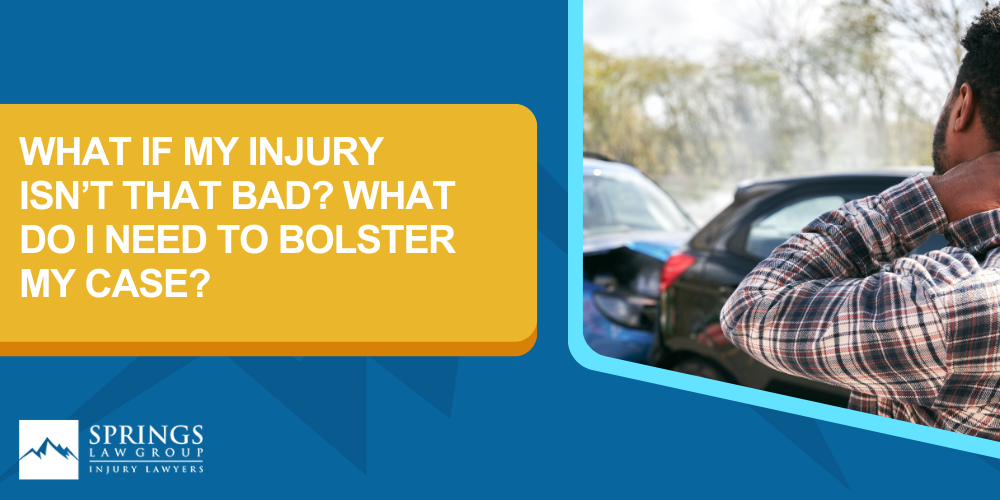
Nevertheless, if you are asking yourself “can I get compensation for depression” there are ways to prove that depression resulted from the accident. Do the following scenarios sound like you?
You deal with the partial or complete deterioration of the body or body part over time;
You face the mental and physical consequences of amputation;
You are not capable of doing things that used to bring you joy (for example, sports, playing with children, sex life with a partner); or
You constantly worry that you are a burden to your loved ones.
Do I really need a lawyer?

Even in 2022, some people still scoff at the notion of “mental health.” This is why it’s best to get a Colorado Springs personal injury lawyer’s help putting together a well-articulated and properly supported claim. Things can get pretty tricky, and there may be pushback in getting you your award.
What if I don’t want to see a therapist?
Mental health counseling is not essential to recover these types of damages, but it may be beneficial. With the evidence of a medical expert, mental health counseling can help demonstrate that, as a result of the accident, you suffer from symptoms such as depression, insomnia, anxiety, sadness, or other symptoms that are difficult to show with objective tests. Such as post-traumatic stress disorder (PTSD). An adjuster will likely require expert evidence.
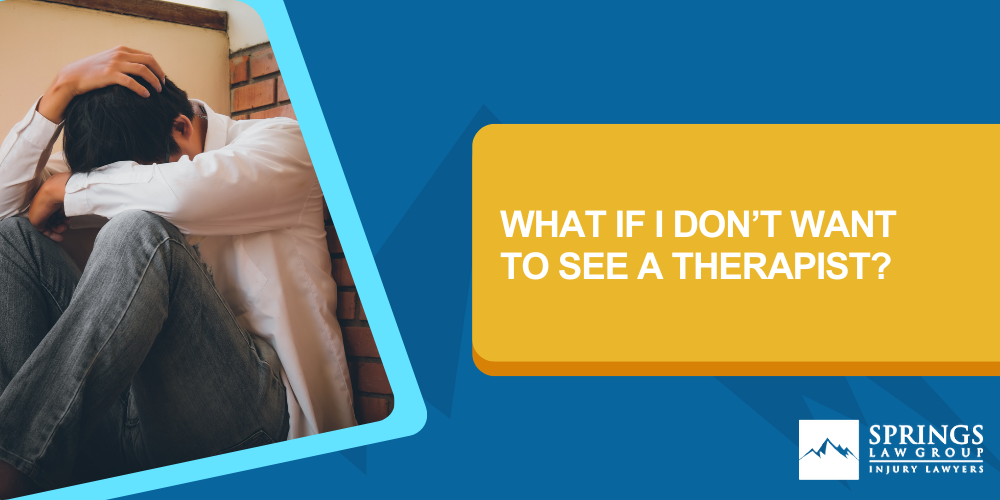
Let’s not waste any more time. Your mental health is at stake!
